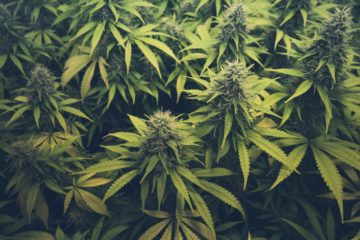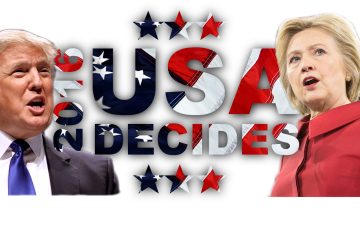
Marijuana Legalization by Blunt Force: A Decade of US Policymaking through Ballot Initiatives
Election day 2020 was another big moment for drug policy reform in the US as voters across diverse states rejected the status quo and endorsed liberalizing drug laws. Arizona, Montana, New Jersey and South Dakota legalized marijuana for recreational purposes as the news proclaimed voters had “just said no to America’s war on drugs,” calling it “a banner year for drug decriminalization.” That election day brought significant wins for drug policy reform is not new. Beginning in 2012 with Colorado and Washington state, 13 out of the 15 states that have legalized recreational cannabis thus far have done so through ballot measures.[1] In 2014, Alaska and Oregon followed suit along with Nevada, Massachusetts, Maine and California in 2016 and Michigan …
October Surprise: How Foreign Policy Can Shape US Presidential Elections
The president’s recent diagnosis with Covid-19 sent the US presidential election race into a tailspin. As Donald Trump and Joe Biden jockey to regain control of the media narrative at a crucial phase of the campaign, speculation about a possible “October surprise” is widespread. Today, the term refers to any news story that breaks late in an election cycle and has the potential to affect the outcome of the election. Yet its origins are firmly rooted in foreign policy. In particular, the phrase describes a sitting president’s alleged propensity to manipulate events to boost their electoral prospects. The president’s recent tweet calling for all remaining US forces in Afghanistan to return home by Christmas has fueled suspicions that Trump is playing politics …

A campaign for the poor? The politics of Medicaid and the 2020 election
Since the 2018 midterm election, Democratic socialists have been leading voices in the Democratic Party, a trend that was all the more evidenced by Bernie Sanders’ resounding primary victories in states like Nevada, Colorado, and among others California. If anything, these voices have successfully brought poverty and social justice to the forefront of the Party’s politics as issues like child poverty, wages, housing and education dominated the primary debates. This was especially the case in Iowa on 14 January as protests by the Poor People’s Campaign took place outside the debate venue. The organisation represents the interests of the poor with a name referencing a series of demonstrations for economic justice organized in 1968 under the leadership of Martin Luther …

Will Congress be able to hold President Trump in check?
Donald Trump will become the 45th President of the United States in January, but will he actually be able to carry out his agenda? Nigel Bowles writes that he will largely be able to. In the areas of trade, security, taxation and judicial appointments Congress will struggle to constrain him under current law and politics. Changing immigration law and reforming the Affordable Care Act are likely to prove more challenging. Nonetheless, during the first year of the Trump presidency American politics is likely to give the appearance of being what it only rarely is: a presidential system. For better or for worse, President Trump really will be in charge. The United States constitution is Madisonian in design and spirit. Separation of powers and …









